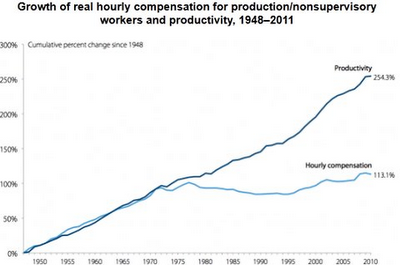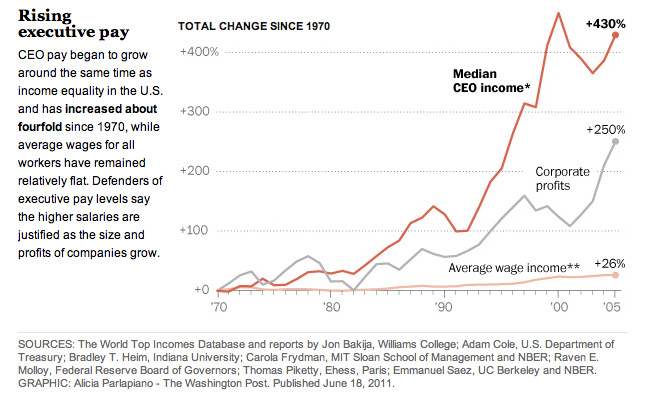Addressing The Current Crisis
Part of the Modern Plan was to use science to discover the methods and technologies that would create the best approximation of Heaven on Earth. Now, while luxury goods and modern conveniences are all very nice, Heaven is better approximated through peace on Earth and a good life for those who bear goodwill to their fellow man. Thus, for us, creating a heaven on Earth means bringing about a state of world peace for those who deserve it, and rendering ineffective all those who prefer to cause trouble (and, preferably, doing this in a way which reforms them, so that they can, sooner or later, live in harmony with those for whom things like empathy, cooperation, and generosity come more naturally).
So, how can it be done?
Is Education the Answer?
The natural path towards such an outcome is to start with a good educational system, one geared toward producing and identifying capable and benevolent civic leaders. Thus, in due time, each graduating class would provide a fresh crop of prospective leaders, each vying to outdo their predecessors in the benefits they bestow on their citizens.
The catch for us, of course, lies in the phrase 'in due time'. Given the current state of our educational system, which is set up to produce, not benevolent leaders, but compliant employees, and which has been so firmly fixed on this goal for so long that even the most traditional teachers find it difficult to think outside this box, it appears that 'in due time' means not only the time needed to bring a fresh generation through such a system, but also the time needed to figure out how to create and implement such a curriculum, as well as the time needed to overcome the money and objections of those who fund the current system because it supplies them not only with compliant employees (which they find very useful), but also with pliable politicians (which, they find, efficiently helps their bottom line). Consequently, the meaning of 'in due time' starts to pan out in this context as meaning 'pretty much never', so, while a good education is the natural path, it is not currently available, and is not likely to become a realistic possibility unless the economy undergoes some kind of dramatic change.
Is Reforming the Economy the Answer?
Since our economic system has at least co-opted, if not corrupted, our educational system, this looks like a good place to start, but, if we think that the moneyed interests (and the politicians their money has installed) will insurmountably oppose changes to the educational system (which merely facilitates their ends), we can be sure that they will defend the economy itself even more staunchly. If you'd like a sense of how bad things have gotten, take a look at these charts and follow the links. Chances are, your circumstances are reflected by the more or less flat lines in the lowest position on the charts:
The moral of the story is that, as far as productivity is concerned, there's an ever-increasing supply of wealth to be spread around, but those who are responsible for spreading it around (the CEOs) are filling their own pockets instead. It looks, then, like we've been putting the wrong people in charge for quite some time now. They, of course, have been using their gains to consolidate their position, so they hold all the cards while we struggle to stay afloat. Consequently, the thought of reforming the economy is more akin to a pure fantasy than it is to any kind of real possibility, especially in the short amount of time we have to turn things around. And indeed, this is no time to be wasting time.
Is Reforming the Government the Answer?
The politicians, or at least a sufficient number of them, are securely in the pockets of the same wealthy class that controls the economy and the schools, and that wealthy class pays handsomely to insure that the laws are always written in their favor, and that the police are trained and supplied to uphold those laws, so the dream of reforming the government is just as far-fetched as the thought of reforming the economy.
Is Reforming the Police the Answer?
One might think, since the police are composed of more or less ordinary citizens, and are generally not dependent on the (calculated) generosity of the wealthy, that their sympathies might naturally lie with their oppressed brothers and sisters, but history shows that most officers of the law routinely exhibit a strong bias in support of the wealthy, and are happy to crack the heads of protesters, and to resist any efforts to police the police. Thus, the police imagine themselves to be peers and protectors of the wealthy, and are quick to distinguish themselves from the oppressed masses, because, how can they be counted among the oppressed, when they are the ones doing the oppressing? Since most officers of the law are not philosophers, the incongruity between their beliefs and their reality is not something that readily enters their minds—especially when the riot gear is on and the adrenaline is pumping—and is not a particularly welcome thought when it is pointed out to them. Consequently, it is vain to hope that the police will spontaneously join or support an effort to reform them (they are certain that they are doing a fine job as it is, thank you), and one can be certain that the vast majority of them will side with the wealthy and the politicians who, in response to any attempt at reform, will solicitously rush to stand by and endorse their behavior and the status quo.
Is Protest the Answer?
Protests have worked in the past. The ancient Romans staged a walkout in protest of the laws the aristocrats were imposing on them, and forged a compromise which worked well for over 300 years, but then laid the foundations for the downfall of the Republic and the rise of the Emperors; so the reform eventually had a boomerang effect which stripped the people of all their power. Often, protests are greeted with violent crackdowns, sometimes they weather these storms, often they do not. In order for a protest to succeed, it needs to be very well organized, and well funded. When the Romans walked out, they all walked out. If some had been apathetic or loyal to the aristocrats, the bargaining power of the protesters would have been significantly weakened, and their chances of success would have been correspondingly diminished. In modern strikes, it is often a contest of resources: do the strikers have enough cash reserves to enable them to survive until the strike causes enough economic pain to their employers, and so gets them to negotiate, or can the employers afford to simply wait until the strikers are in desperate need of a paycheck? It's a tricky calculation, and it's often based on guesswork, so protests are a risky gamble that are best avoided, and, when utilized, should only be undertaken with an abundance of circumspection and advanced planning. The Luxipolis position on protests is that they are too risky: we want success, not a chance at success.
Should we Enlist the Aid of the Media?
To the extent that the press is a free press (a questionable proposition when the press relies on advertisers or donors for its survival), it must arrive at its own conclusions as to what causes it should support, and which ones it must ignore or oppose. To the extent that the press is not free, we can only count on support in those areas where the interests of those who control the press coincide with our interests. Since 'those who control the press' are likely to be the same wealthy persons who control the economy, the schools, and the politicians, enlisting the aid of the media looks about as realistic as reforming education, the government, the economy, or the police.
What can we do?
Rather than trying to reform institutions (like the government, education, the economy, the media, and the police), we can focus, instead, on reforming people. Of course, it must be said that most people don't need to be reformed—for the most part, the institutions are the problem, not the people. There are, of course, those few individuals who run the institutions or otherwise back them who need to be reformed, but those who are suffering the consequences of unfair treatment do not need to be reformed.
While the people do not need to be reformed, they do need to be formed, that is, educated and organized. The reason that the few and their institutions can oppress the rest is because the rest are disorganized and kept that way by policies that enable the few to divide and conquer. For instance, while it is abundantly clear that most or all of the people you encounter in a given day pose no threat to you, the powers-that-be have an interest in keeping you disassociated from them, and so they cultivate feelings of suspicion and distrust, and then capitalize on it by selling you guns, pepper spray, cameras, alarm systems, locks, safes, lights, fences, guard dogs, militarized police forces, overcrowded jails, and so on.
Living a life that is haunted by fears and plagued with anxieties is not necessary. In fact, it's not even civilized. Animals live in this mindset, and so they start at the snap of a twig, and run away or fight even if you try to do them a favor. The assumption that everyone is your enemy is debilitating, and it's based on a set of lies that the wealthy have been peddling for several hundred years. By now, they've got so many people cooped up inside their own little shells that the whole population acts more like a docile basket of eggs than like free people who use and enjoy their independence. So take a look at your protective shell, is it keeping the bad guys out, or fencing you in?
You know, there comes a time in every bird's life when it's had enough of being cooped up inside a shell, and so it breaks out, and suddenly it discovers a much wider and more beautiful world than what it dreamt of in its shell, and, in due time, it learns not merely how to get along in that world, but how to soar above the mountains and play among the clouds. Don't let stories of an imaginary or far-away boogeyman keep you from being who you ought to be. If feeble hatchlings consistently find the courage to break out of their shells, what's slowing you down?
"The world," you say, "Is a scary place; people are out to get me and take my stuff." That's not you talking, it's you doing their talking for them. They've turned you into a parrot or a tape recorder, and now your repeating the things they taught you on the evening news. Don't do their work for them. Don't reinforce the shell, break it!




